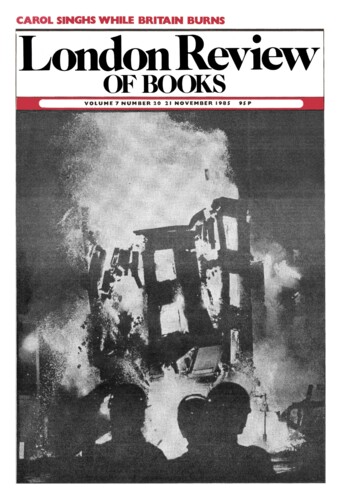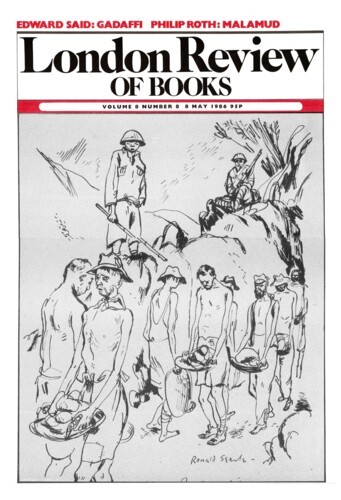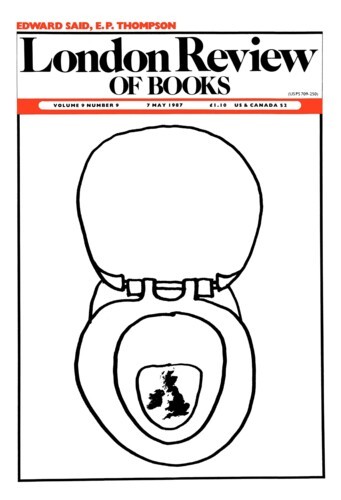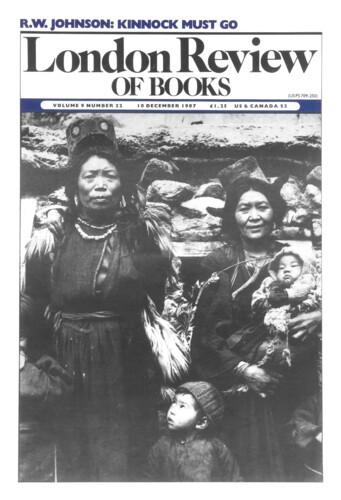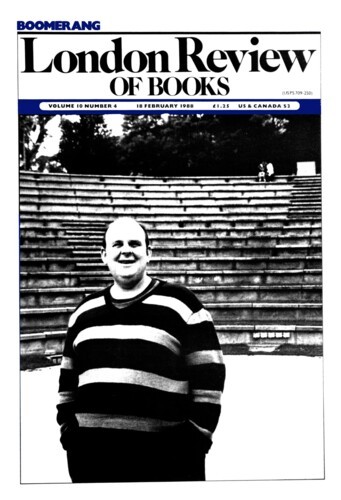How not to get gored
Edward Said, 21 November 1985
Readers of American writing have been struck by the prevalence of what Dwight Macdonald once called ‘how-to-ism’. This is not simply a matter of guides to gadgetry, or to cooking, or to doing things like marrying wealth and achieving peace of mind, although writing on all these subjects is more plentiful in America than anywhere else. What I have in mind is the practical, instructional attitude which is to be found in a great many canonical works of high literature: Moby Dick, for instance, can be seen as a manual of what to do if you want to go whaling, as well as an encyclopedia of everything pertaining to ships and the sea. Cooper’s novels are full of practical hints about forest and Indian life, Twain is stuffed with South-Western and Mississippi River lore, as is Walden of New England nature and Faulkner of the South; in Henry James the tendency takes the form of connoisseurship. In all these cases the implication is that reality cannot stand on its own, but requires the services of an expert to convey or unlock its meaning. The converse of this is no less true, that Americans seem interested not so much in reality as in how to approach and master it, and for this expert guidance is necessary.
